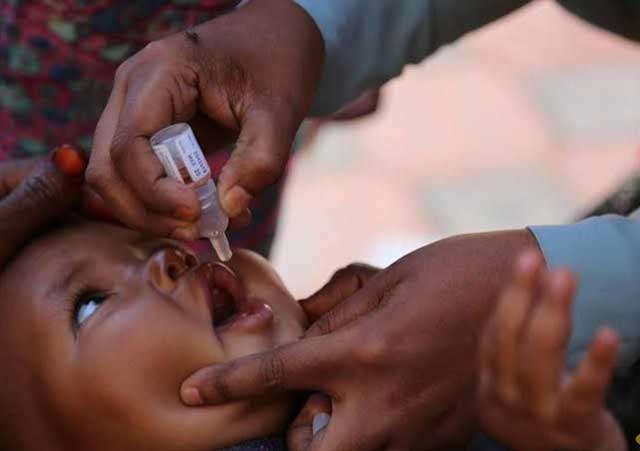
Kampala, Uganda | THE INDEPENDENT | The World Health Organisation-WHO has applauded Uganda for maintaining the numbers in the routine vaccination exercise despite the COVID-19 pandemic, which affected vaccination in many countries. This follows the findings of a new report that shows that while 25 million children globally missed out on Diphtheria, Tetanus, and Pertussis (DPT) shots due to COVID-19 lockdowns, in Uganda coverage for vaccination stood at more than 90 percent.
Reports from WHO show that the percentage of children who received three doses of the vaccine against diphtheria, tetanus, and pertussis (DTP3) fell 5 percentage points between 2019 and 2021 to 81 percent. Figures from the Ministry of Health however show that in 2020 and 2021, which were characterized by th nationwide lockdowns, Uganda recorded an average of 95 percent for all DPT shots.
By July 2020, the coverage for DPT 1 and 3 stood at 93 and 97. By that time over 290,000 children were estimated to have missed out on the jabs. In 2021, coverage for the vaccine stood at 97 percent and 91 percent with a total of 225,000 missing out on the jabs.
To enable all the children to get their jabs, the health ministry organised vaccination catch-up days. Dr. Immacualte Ampaire, the deputy programme manager of the Uganda National Expanded Programme of Immunization (UNEPI) admits that the country struggled to surpass the WHO vaccination threshold.
“Our health facilities struggled during COVID but we were able to make it because we have a robust health system. We might be struggling with specialized care, curative and referrals but it’s robust and can survive big blows like COVID-19 due to our strong public health interventions like child health days,” she said.
Similarly, the Programme Manager of UNEPI, Dr. Alfred Driwale attributes the country’s immunization coverage to a robust health sector. According to Dr. Driwale, despite the aftermath of the COVID-19 pandemic like lockdowns that crippled transport, many mothers were able to take their children for vaccination because health facilities are located in communities near families.
While Uganda and Pakistan were applauded for their vaccination coverage, other countries were not so fortunate. Figures from the United Nations International Children’s Emergency Fund(UNICEF) and WHO show that vaccine coverage dropped in every region, with the East Asia and Pacific region recording the steepest reversal in DTP3 coverage, falling nine percentage points in just two years.
Figures show that out of the 25 million children who missed one or more jabs of DPT, 18 million children did not receive a single dose during 2021. The vast majority of whom live in low and middle-income countries, with India, Nigeria, Indonesia, Ethiopia, and the Philippines recording the highest numbers.
Immunization coverage for other vaccines also did not fare well. Globally, over a quarter of the coverage of the Human-Papilloma Virus (HPV) vaccines that was achieved in 2019 was lost. The coverage of the first dose stood at only 15 percent.
Catherine Russell, the UNICEF Executive Director predicts that if immunization coverage continues to decline at the rate it currently is due to COVID-19, other outbreaks of immunizable disease will be recorded.
“This is a red alert for child health. We are witnessing the largest sustained drop in childhood immunization in a generation. The consequences will be measured in lives. While a pandemic hangover was expected last year as a result of COVID-19 disruptions and lockdowns, what we are seeing now is a continued decline. COVID-19 is not an excuse. We need immunization catch-ups for the missing millions or we will inevitably witness more outbreaks, more sick children and greater pressure on already strained health systems,” she said.
According to the UN agencies, vaccine coverage in 2021 was the lowest it has been in 30 years. They predict that the situation will worsen as the COVID-19 pandemic continues to spread. To be able to increase coverage, countries are being urged to intensify catch vaccination campaigns, increase trust in vaccines, invest more in primary health care and invest in research of new vaccines.
*****
URN
 The Independent Uganda: You get the Truth we Pay the Price
The Independent Uganda: You get the Truth we Pay the Price



